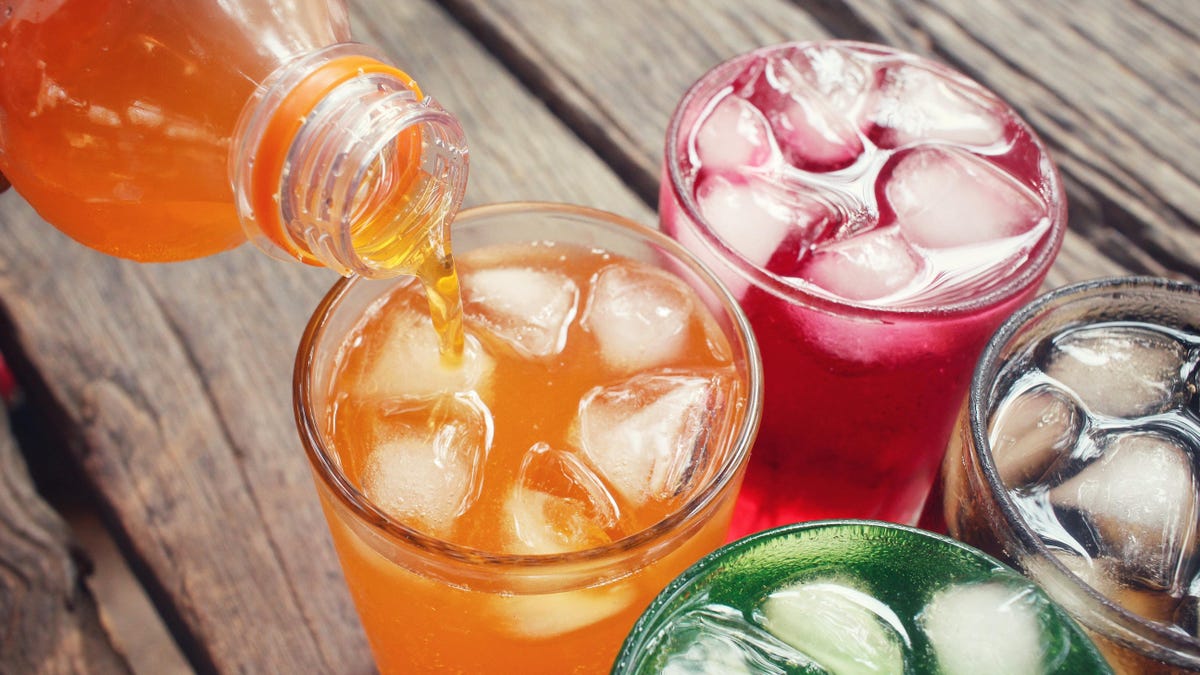What Is BVO and Why Does the FDA Ban It From Drinks?

Essentially, it’s an American tradition that the FDA bans a controversial ingredient only after companies have largely stopped using it— as has been the case with trans fats and BPA in baby bottles . Now brominated vegetable oil (BVO) is ready to join this list. This additive was once used in Mountain Dew and is still used in some brands of citrus-flavored sodas.
The FDA announced Thursday that it would like to rescind the ruling that declared BVO safe in small quantities. Currently, BVO can be used at concentrations of 15 ppm or less “pending the results of additional toxicology studies,” which the agency must review periodically. It looks like these reviews have finally succeeded in changing some people’s minds.
What is BVI anyway?
Brominated vegetable oil is an emulsifier used in citrus oil flavored carbonated drinks. Without an emulsifier, the oil will separate, potentially forming a film or ring at the top of the drink since it is lighter than water.
BVO is called “brominated” because the element bromine is added to the oil molecules. This makes the oil heavier so it doesn’t float and helps the droplets (the BVO/fragrance oil mixture) stay suspended in the mixture.
If you’ve heard that BVO is also used as a fire retardant, that’s not entirely true; Brominated compounds are used for this purpose , but the BVO in drinks is not the same composition.
Why is this prohibited now?
There have been concerns about the safety of BVO for decades, but not enough research has been done to address the issue. In 1970, the FDA decided it could no longer list it as “generally recognized as safe”; in 1977, food manufacturers persuaded the FDA to allow it again in much smaller doses. (The original limit was 150 ppm; the limit has been 15 ppm since 1977.)
In some countries, including Australia, Japan and members of the European Union, BVO is not allowed in food or drink at all. Manufacturers have other ingredients they can use instead of BVO, including sucrose acetate isobutyrate (SAIB), glycerol rosin ester (also called ether gum), and locust bean gum, which are legal under FDA regulations.
In 2014, the FDA decided that they still didn’t have enough information to say whether BVO was truly safe enough to remain on the market, and so commissioned rat studies to answer some of the outstanding questions. These studies, the FDA now says, “do not support the safety of BVO as a food ingredient.”
What’s wrong with the BVI?
First, bromine is chemically similar to iodine, and our bodies use iodine to produce thyroid hormones. Researchers were concerned that our thyroid gland might absorb bromine instead of iodine, leading to thyroid problems. New research commissioned by the FDA has shown that high doses of BVO do cause thyroid toxicity in rats, confirming findings from previous studies in rats and pigs.
Another problem is that our bodies can accumulate bromine from BVO over time. Recent FDA studies have also confirmed this. This is a problem not only because bromine can be toxic, but also because its accumulation makes it difficult to conduct safety studies of BVOs. Even if you give a person a certain amount of bromine for testing, you don’t know how much is actually in his body.
There are still many questions left. Does BVO actually cause thyroid toxicity at the levels people experience in orange soda? We do not know. Probably no. We also don’t know if there are problems with BVO that affect other parts of the body or processes. But the FDA says that now that it has seen evidence of thyroid toxicity and bioaccumulation, it is no longer interested in spending time on safety studies:
Although safety concerns remain regarding potential developmental and reproductive toxicity from dietary exposure to BVO, we do not believe that resolution of these remaining outstanding safety concerns is necessary to conclude that there is no reasonable assurance of no harm from such use. We therefore propose to withdraw the temporary authorization of BVO as a dietary supplement.
In other words, BVO was permitted because it was assumed that it would “not cause harm” to consumers. The FDA hasn’t said it’s harmful, just that it will no longer consider BVO harmless. This is enough for it to be removed from the market.
Which carbonated drinks contain BVO?
Pepsi and Coca-Cola said in 2014 that they would no longer use BVO in their drinks, and if you check the labels on Mountain Dew (made by Pepsi) or other name-brand sodas, you’re unlikely to see it.
But this additive is still used in Sun Drop citrus soda , Giant’s orange soda , Mountain Dew’s version, Walmart’s Great Value Mountain Lightning , and many others. If the soda contains BVO, the ingredients label will say “brominated vegetable oil” (usually at the end of the list since it is present in such small quantities).
When will the rule take effect?
The FDA has proposed a rule banning this ingredient, and they are accepting public comments on this proposal between now and January 17, 2024 . There is no official timeline for publishing the final version of the rule yet.
Once the final rule is published, it will be considered “effective” after 30 days, and manufacturers will have a one-year period to stop selling products containing BVO. Therefore, we do not expect the ban to come into force until early 2025 at the earliest.